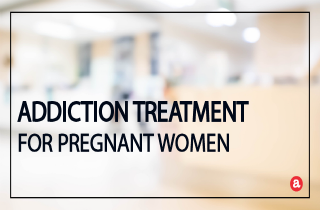Pregnant women need specialized care during addiction treatment. At the same time they are going through treatment for themselves, they must also make sure that their unborn child is well cared for, making pregnant women and addiction treatment a difficult task.
Here, we review addiction treatment options for pregnant women. Then, we invite your questions about addiction treatment at the end. We try to answer all questions with a personal and prompt reply.
Pregnant women and addiction treatment
Of all the demographics that need addiction treatment, it can be argued that pregnant women need it the most. Not only are pregnant women putting themselves at risk when they drink or do drugs, but they’re also putting their unborn child at risk. Children who are born to mothers that substance abusers are at higher risk for complications, including low birth weight, birth defects, premature birth, neonatal withdrawal, and even stillbirth.
Some of the most important aspects of addiction treatment for pregnant women include:
● Financial support
● Group therapy with sympathetic peers
● Individual addiction counseling
● Individual mental health therapy
● Prenatal medical care
● Parenting education
● A strong emotional support system
● Vocational and educational support
Pregnant women drug addiction treatment
Pregnant women and their unborn children need special care during drug addiction treatment. Addiction treatment for pregnant women often includes frequent physical check-ups for both mothers and children, for instance, to ensure that both remain as healthy as possible during the process.
Aside from medical supervision, however, for pregnant women, drug addiction treatment is very similar to traditional drug addiction treatment. It requires a few very important steps, from the assessment to the aftercare. Here are the basic stages of alcohol or drug addiction treatment for pregnant women:
Stage 1: Assessment
The assessment is usually done when a pregnant woman either asks for help or is suspected of having a substance abuse problem. Generally, women that use drugs or drink excessively while pregnant are good candidates for treatment. A substance abuse disorder diagnosis, however, can usually only be made by a doctor or addiction specialist. This diagnosis is usually made after an addiction specialists learns more about a woman’s drug or alcohol use.
Stage 2: Detox
Detox is an important and crucial step in addiction treatment for women. Any pregnant woman going through detox should do so under the supervision of a medical professional, for the sake of her baby’s health and her own health. Pregnant women detoxing from drugs such as opiates, including heroin or morphine, may be need to take medications such as buprenorphine or methadone during detox. Studies have shown that taking these medications during treatment can reduce the risks of complications at birth.
Stage 3: Psychological Treatment
Addiction treatment for pregnant women is typically a combination of medical treatment and mental health treatment. The medical treatment is necessary to help ensure that both mother and child stay as healthy as possible throughout the process. Mental health treatment is used to help pregnant women break their psychological addiction to drugs and alcohol, as well as treat any underlying emotional disorders or stressors that may contribute to the substance abuse.
Stage 4: Aftercare
Once the initial addiction treatment is complete, recovery is far from over. Pregnant women and their babies will often need a great deal of care. Newborn infants, for instance, may need specialized neonatal supervision and treatment for any complications. In order to stay sober and cope with the stress of being pregnant or a new mother, most women will also need several weeks or months of outpatient treatment sessions. Some women may even find that their addiction treatment aftercare lasts for several years after addiction treatment.
Pregnant women and addiction treatment barriers
Unlike most other demographics, pregnant women have one very good motivating reason to seek addiction treatment. Unfortunately, they also have a number of obstacles as well. We’ve listed some of the common pregnant women addiction treatment barriers below.
● Family obligations
● Financial problems
● Unsupportive partners
● Shame and embarrassment
● Career obligations
Addicted pregnant women
Fortunately, there are a number of places that addicted women can turn to as soon as they need help. A pregnant woman’s doctor is often the first place they’ll turn to when they need treatment. Obstetricians will generally be more than willing and able to refer pregnant women to addiction treatment facilities that cater specifically to this demographic.
Pregnant women can also look into treatment facilities on their own as well. The Substance Abuse and Mental Health Administration website is a good place to begin. The substance abuse treatment facility locator can be used to find local addiction treatment facilities. Searches can also be filtered to show only facilities that cater to women or pregnant women.
Pregnant women addiction questions
It’s not uncommon for pregnant women to feel completely overwhelmed, scared, and even helpless when struggling with a drug or alcohol addiction. It’s important to keep in mind, though, that help is available, and it’s important to enter treatment as soon as possible.
If you or a loved one is pregnant and in need of addiction treatment, we’d be happy to help as well. Simply leave your questions, concerns, or experiences in the comments section below, and we’ll respond to you in a timely manner.









Related Posts